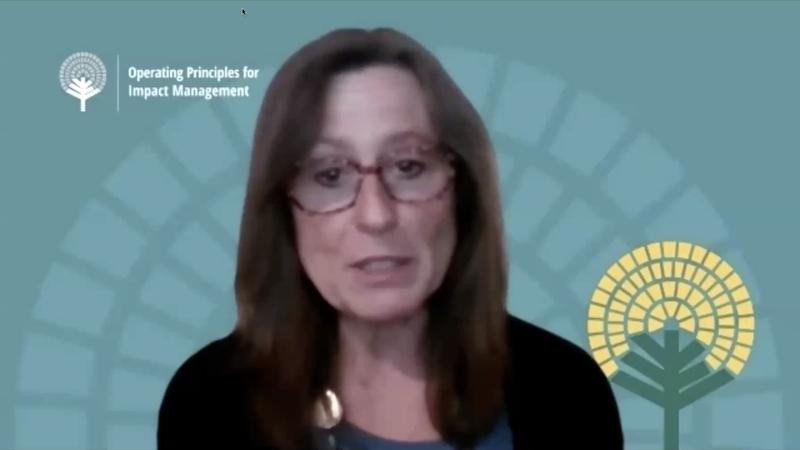2021-06-08
Sophie He

HONG KONG - The COVID-19 pandemic has raised the awareness of impact investing globally, and a more-standardized, measurable practice of impact investing will help reshape the post-pandemic investment world, an expert said on Monday at a China Daily Asia Leadership Roundtable webinar. Standards are very important to help define and bring discipline to markets, said Diane Damskey, head of the Secretariat, Operating Principles for Impact Management, during the panel discussion themed “Impact Investing and ESG in Post-COVID Economic Recovery”. The Operating Principles for Impact Management was created in 2019 to provide a standard for investors to ensure they incorporate impact throughout the life of an investment. The principles were intended to be “a framework for investors for the design and implementation of their impact management systems,” its website said. Damskey said she is frequently asked about the difference between impact investing and sustainable investing. Impact investing is a subset of sustainable investing, and impact is a subset of environmental, social and corporate governance alignment, she said. ESG is the foundation and impact is a level of rigor above that, because it requires intentionality — you must target an intentional impact at the outset of an investment contribution. You must be able to articulate why your capital makes a difference to the impact achieved. And finally, you must be able to measure the impact, Damskey said. She pointed out that impact investing is critical to post-COVID-19 recovery as impact investors are “patient capital” — capital dedicated to meet long-term goals to achieve a positive, social or environmental impact alongside financial returns. “Impact is sticky capital. It’s not looking for short-term gains. It’s willing to stay with an invested company through challenging times. And I think it’s safe to say that we’re in one of these very challenging times.” Independent verification For long-standing impact, investors have historically targeted the sectors and regions that have been most affected by the pandemic. They have stuck to their commitments over the past one and a half years and are dedicating more capital when they can, she added. But Damskey said that people cannot just say they’re an impact investor. This principle requirement means that impact investment needs to be verified by an independent party. Signatories consistently say that the impact principles have helped them manage through the pandemic. The discipline required in preparing the disclosure statement helps them clarify and better articulate their impact management systems and processes. Many of them are long-standing impact investors, she said. In the past year, their investment teams are better supported and better able to address the challenges they faced, Damskey explained, adding that there’s also an effort to bring some standardization to impact assessment and reporting. “We expect to see greater regulation around sustainable investing. We want to ensure that our working impact is an alliance of what is occurring in the other areas. So it’s an extremely exciting time to be an impact of that thing and be able to help shape the future of this market.”